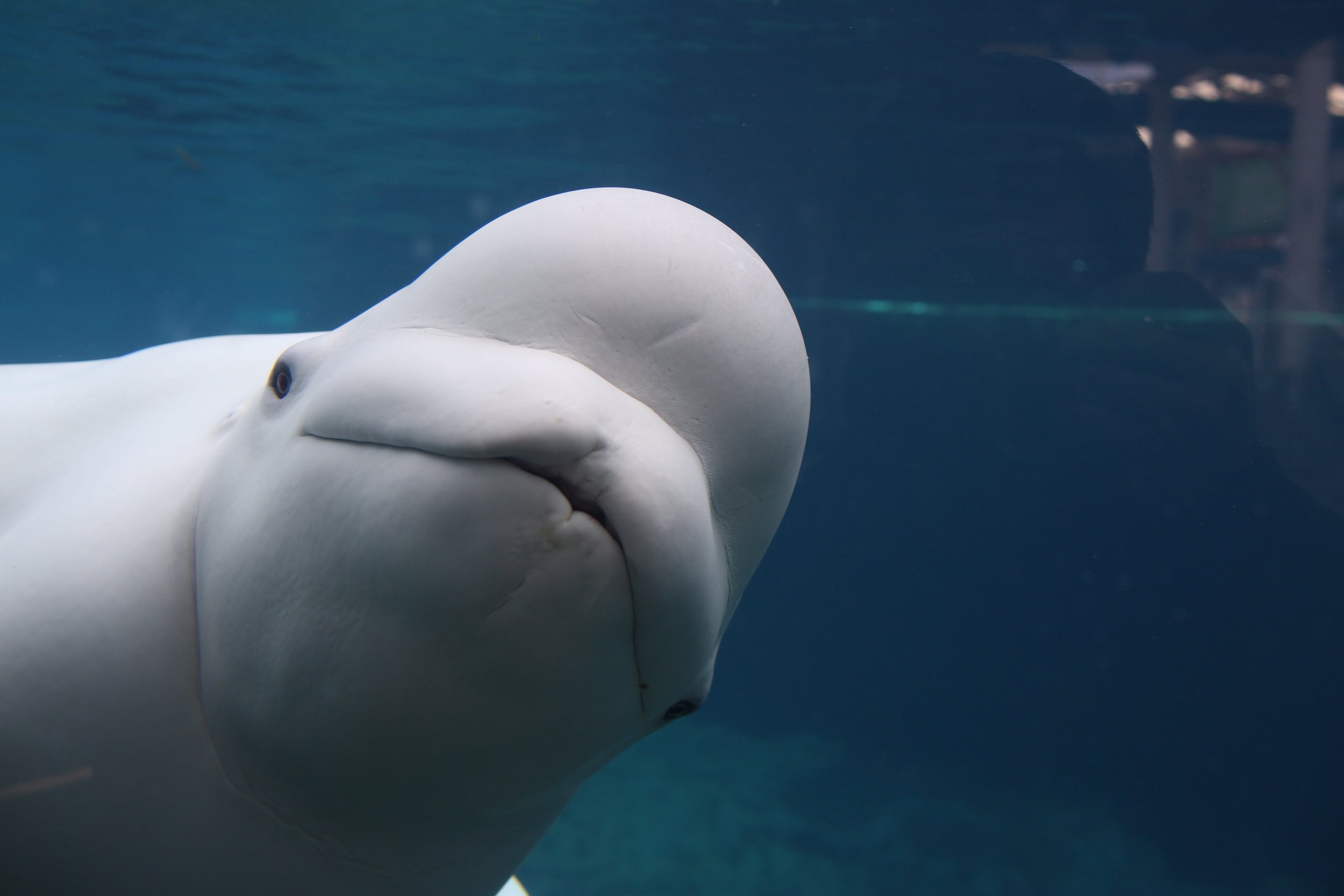
Norwegian marine experts have encountered a beluga whale they believe was been trained by the Russian navy to harass foreign shipping as part of a wider program of utilizing marine mammals in military operations.
The whale was spotted in the Barents Sea close to the small village of Inga in the far north of the country last week, The Guardian reported. Fishermen became suspicious when they saw that the animal was wearing a black harness and appeared to repeatedly seek out their boats.
One of the fishermen, Joar Hesten, told the Norwegian NRK broadcaster that the whale was swimming between the fishing boats and trying to pull straps and ropes from the sides of the vessels. Hesten described the animal as very tame and suggested it was well used to human beings.
The harness, which appeared configured to carry a camera or even weapons, was retrieved from the whale. Writing inside read, "Equipment of St. Petersburg."
Martin Biuw of the Institute of Marine Research in Norway told NRK, "If this whale comes from Russia—and there is great reason to believe it—then it is not Russian scientists, but rather the navy that has done this."
Audun Rikardsen, a professor at the department of arctic and marine biology at the Arctic University of Norway, concurred. He explained, "We know that in Russia they have had domestic whales in captivity and also that some of these have apparently been released. Then they often seek out boats."
Rikardsen said he had spoken with Russian counterparts who assured him they had no knowledge of any scientific projects involving belugas. "They tell me that most likely is the Russian navy in Murmansk," he added.
The Russian military is reportedly renewing its Cold War–era training of marine mammals, considering such animals useful tools in defending naval bases, assisting military divers and even attacking intruders, The Guardian explained. In 2016, Russia's Ministry of Defense bought five bottlenose dolphins for $26,000. Meanwhile, President Vladimir Putin has been expanding Russia's military footprint in the Arctic, opening new bases to demonstrate Moscow's intention to dominate the region.
In the 1980s, the Soviet Union established a dolphin training program that ended in the 1990s. But further research has since expanded to include beluga whales, seals and more dolphins, according to a 2017 report by the Russian defense ministry-owned TV Zvezda broadcaster.
Citing the TV Zvezda report, The Siberian Times explained that training was conducted at the Murmansk Sea Biology Research Institute for the country's Northern Navy. However, beluga whales were found to be less effective than dolphins and seals. The whales were too sensitive to the cold of arctic waters and quickly became ill. The animals also did not display the "high professionalism" shown by the seals, which demonstrated better memory for oral commands.
Uncommon Knowledge
Newsweek is committed to challenging conventional wisdom and finding connections in the search for common ground.
Newsweek is committed to challenging conventional wisdom and finding connections in the search for common ground.
About the writer
David Brennan is Newsweek's Diplomatic Correspondent covering world politics and conflicts from London with a focus on NATO, the European ... Read more
To read how Newsweek uses AI as a newsroom tool, Click here.








